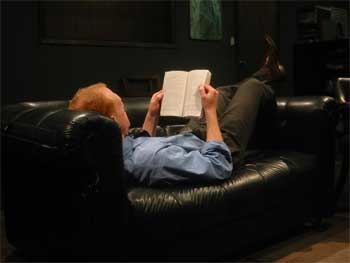
- San Francisco Chronicle February 14, 2020
- The Times of London May 10, 2012
- The New York Times December 16, 2010
- The New Yorker September 27, 2010
- New York Magazine October 6, 2010
- The New York Times October 6, 2010
- The New York Times February 5, 2010
- The Boston Globe May 15, 2009
- The Sydney Morning Herald December 28, 2009
- The Sydney Morning Herald May 19, 2009
- The Chicago Tribune November 17, 2008
- Time Out Chicago November 13-19, 2008
- Chicago Sun-Times November 15, 2008
- The Irish Times October 4, 2008
- The Independent October 3, 2008
- Irish Times September 29, 2008
- ArtForum: Best of 2007 December 1, 2007
- The New York Times Magazine December 9, 2007
- The New York Times September 16, 2007
- The Village Voice September 12-18, 2007
- The Bulletin September 4, 2007
- Publico July 4, 2007
- Die Presse June 17, 2007
- Klassekampen December 12, 2006
- Variety October 1, 2006
- Neue Zürcher Zeitung August 28, 2006
- Landboote August 28, 2006
- Tages-Anzeiger August 28, 2006
- The New York Times July 16, 2006
- Het Parool June 16,2006
- 8Weekly June 16, 2006
- Trouw June 16, 2006
- Walker Art Center interview June 8, 2006
- NRC Handelsblad June 2, 2006
- De Volkskrant May 29, 2006
- Le Soir May 24, 2006
Gatsby, Every Last Word Of It, On Stage
by Alejandra O’Leary
A short red-haired employee in a drab anonymous office, discovering a copy of The Great Gatsby by his computer, begins to read the book out loud to himself. His co-workers — frumpy, reserved, or sexed-up — enter and leave the scene, carrying papers and thermoses, pushing office chairs, tapping on keyboards. The reader is soon surprised to find his busybody officemates contributing words spoken by Fitzgerald’s characters to his increasingly impassioned and acrobatic recital, which doesn’t stop until he reaches the novel’s famous closing lines: “So we beat on, boats against the current, borne back ceaselessly into the past.”
This, in a nutshell, is Gatz (Gatsby), an audacious six-and-one-half-hour theatrical event created by the New York-based ensemble Elevator Repair Service under the direction of John Collins ’91. The show, which has been presented both as one single performance and in two three-hour installments, will tour Europe next year before going up at the New York Public Theater next fall, pending final approval by the Fitzgerald estate.
Reading an entire book onstage is but the latest innovation for Collins, who moved to New York and founded ERS after his graduation. At Yale, he once directed an offbeat Alice in Wonderland in a 9-by-100 foot room in the steam tunnels under the Pierson College dining hall. He also became obsessed with the Wooster Group, a legendary New York experimental theater ensemble. “They had people naked on video screens, people talking over each other,” says Collins. “It was all so wonderfully integrated. You had to look at it the way you look at visual art. It was then I realized you didn’t have to build a work for theater directly from a play script.”
Elevator Repair Service created its early pieces by improvising events around physical objects: “a long cardboard tube, random chairs, a wooden box we ended up building a show around, folding partitions we found a way to use in every show we did for five years.” But after producing a body of work that has been praised for its inventiveness and live power (New York magazine called ERS “the best experimental theater group in town”), Collins returned to literature in 2004 with Gatz.
“We had done a piece about Andy Kaufman, and one of his stunts was to take out The Great Gatsby and just read it,” Collins says. At the suggestion of another ERS director, Steve Bodow ’89, the company began to discuss making a piece about Gatsby. Gatz was born when they decided to let Fitzgerald’s work speak for itself — verbatim and unabridged. “We wanted to look at the form of the novel,” Collins says. “The greatness of the book is the writing — it’s not great because it’s this tale of the twenties.”
When ERS held private showings of Gatz, Collins says, he was “terrified about people being bored and uncomfortable. For the audience, it was an act of faith — would they let their experience be shaped by the novel rather than their expectations of a theater piece?”
Collins needn’t have feared. Preview audiences have stayed put, riveted by the unfolding story. Elizabeth LeCompte, director of the Wooster Group, says she admired the way the piece caught her off guard: “I liked that he snuck into it, he came into the material through a side door. The piece was additive, a steady incline up a mountain, constantly adding more ideas. And the acting style went from Jon Stewart-satire mode to deep emotional recall.”
“I’ve always seen live performance as something inherently awkward, and inherently broken in a beautiful way,” Collins says. “Whatever you put through that filter will come out marked up and scarred. Fitzgerald’s writing is challenged by being attached to movement and voices. But by the end, the theater has been blown away by the writing.”